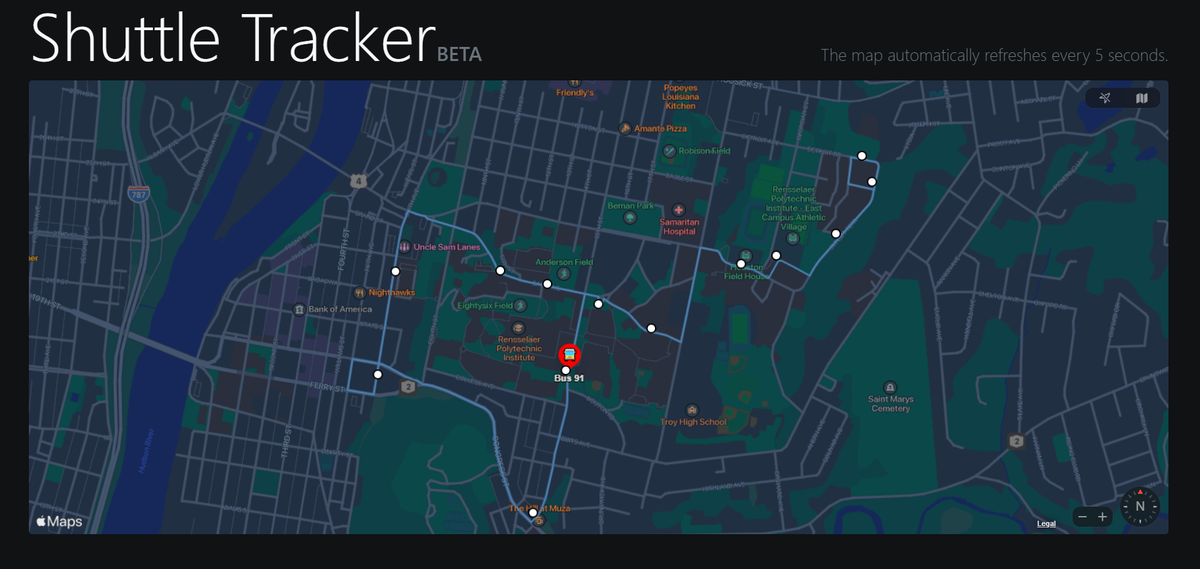HackRPI excels in spite of COVID-19
The 7th annual HackRPI hackathon ran from November 7 through November 8, held virtually this year due to COVID-19. At HackRPI, students can work—either in teams or individually—on a project for free. Even if a student does not have prior experience with working on a technical project, there are multiple workshops and events that occur during the event that can help participants develop new skills. Usually, these projects follow a theme. For this year’s HackRPI, the themes were the following: artificial intelligence, climate change and environmental sustainability, and public health and pandemic response.
What distinguishes HackRPI from other hackathons?
HackRPI President Alexandra Hseuh ’22 explained to The Polytechnic in an email that HackRPI differs from other hackathons in that “HackRPI has a very diverse attendee base in terms of experience level" allowing “students to learn from each other.” Like many other events and clubs, HackRPI had a decision to make due to COVID-19: either go virtual or cancel the event. Hseuh said that the choice to adapt to an online environment was made in the hopes of “enabl[ing] more people to connect with each other in this virtual environment” with the purpose of “hav[ing] a lot of fun.” Hseuh stated HackRPI chose to continue because “[i]t is essential for us to continue to learn and thrive in unusual situations because things are always changing and we must adapt.” Discord, an online messaging platform, was used to allow attendees, mentors, judges, and sponsors the ability to interact with each other.
What were the highlights of HackRPI this year?
Themes:
Firstly, Hseuh explained that great interest in and the prevalence of AI led to it being chosen as a theme. Meanwhile, the intention for the climate change and environmental sustainability theme was to “remind everyone about our impact on the world and how technology can be used to ensure that we can keep staying here for future years.” Lastly, public health and pandemic response was chosen because the COVID-19 pandemic demonstrated a great, existing need for it. Companies can sponsor themes and this year, IBM sponsored the public health and pandemic response and climate change and environmental sustainability themes.
Events and Workshops:
There were several notable workshops held during the event. IBM hosted a “Get building fast on IBM Cloud” workshop which explained the basics of IBM’s cloud software. Google’s “Rapid Prototyping with Flutter and Firebase” workshop introduced attendees to Flutter, a cross-OS development platform, and Firebase, a backend service. Additionally, participants were able to learn more about developing IoT—or internet of things—systems during Lutron’s “Developing a Highly Responsive IoT System from Devices to Cloud” and echoAR’s “Build a Cloud-Connected AR/VR App in 15 Minutes or Less” workshops. Major League Hacking hosted the “Major League Hacking Air Force CTF” workshop which introduced Cybersecurity through three challenges: find hidden code within a website, crack a cipher, and find information within a picture (which is known as Steganography).
Award-winning Projects:
At the conclusion of HackRPI, the winning projects were announced. Kelvin was chosen as the winning project for the following awards: the Best Use of Google Cloud Award, 2nd place, and Best Hardware Hack Sponsored by Digi-Key. Kelvin was a project directed at making a low cost IoT system to make the COVID data collection process easier, using a small prototyping board combined with an app. It was built by Chirag Chandrashekhar, Adithya Krishna, and Karthik Ravishankar from Jyothy Institute of Technology in India.
Mediscope, which is a health data collection, advisory, and communication platform aimed at modernizing healthcare, won the Best Domain Registered with the Domain.com award. Mediscope utilizes IBM’s RiskAPI, an API to predict patient risk, to predict a patient’s risk of contracting a disease due to reported symptoms, and a website to allow patients and medical practitioners greater access to information to accomplish its goal. The team behind Mediscope was Rensselaer’s own Charlie Stanton ‘23, Sage Charity ‘23, Sean Hale ‘23 , and Rupak Stephen ‘23.
Carpool Coordinator is a communal ridesharing coordination platform directed at co-workers and won the Best Use of CockroachDB award. CockroachDB is a database management software. Carpool Coordinator’s members were the following RPI students: Ike Lyons, Kyle Qin, and Brendan Khoury ’22. To alleviate security concerns stemming from ridesharing, Khoury told The Polytechnic that a vital aspect of Carpool Coordinator is “verifying the identities of those involved” as opposed to grouping together random strangers. As for marketing the service, Khoury said it would be “directly marketed to corporations as a service for their employees.” However, Carpool will most likely not “move forward” as an interest in other projects needs to be attended to.
Why should I attend HackRPI in the future?
Khoury “recommend[s] people attend a hackathon as they are a ton of fun and introduce you to a lot of skills that you might use on future projects.” In particular, Khoury thought this year’s HackRPI was “a lot of fun” and “handled as well as it could be during the pandemic.” He “look[s] forward to competing again…[h]opefully, in person next time.” Whether for the fun, experience, or any other reason, the chance to be involved in an interesting project with yourself or your friends is not lost. Anyone interested in HackRPI as a participant can go to this link to learn more and anyone interested in HackRPI as an organizer can contact this email address: hackrpi@rpi.edu.

 Editorial Notebook
Editorial Notebook
 RCOS
RCOS